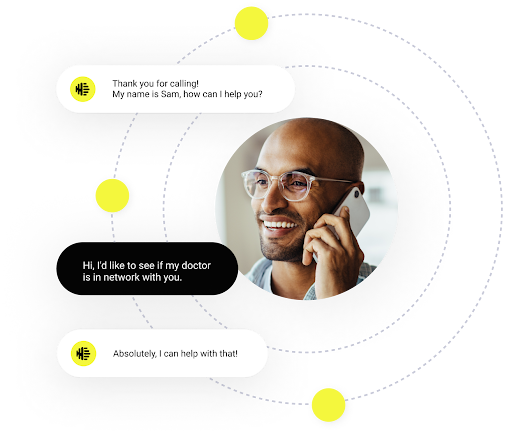
AI Agents Have Arrived, So Who Can You Trust?
In boardrooms and breakrooms alike, one thing is clear: AI agents have arrived. They answer calls, resolve complaints, offer medical advice, suggest loan approvals, and more. It seems there’s an agent for everything: virtual assistants, voice AI agents, copilots, chatbots, and automation tools. But amid this rapid proliferation, a new question looms large: Which AI agents are actually credible? Enterprise leaders don’t lack options. They lack trust.
What Is an AI Agent, Really?
At its core, an AI agent is an autonomous system that can observe its environment, make decisions, and take actions to achieve a goal. But in practice, what differentiates a credible AI agent is not just intelligence, it’s impact.
Credible AI agents do more than talk—they reason, adapt in real time, and learn from every interaction. With full transparency into their decisions and performance, they integrate with human workflows and deliver measurable outcomes like faster resolutions, lower costs, and stronger compliance.
The Gold Rush (and Risk) of AI Agents
We’re seeing AI agents explode across industries:
- In healthcare, voice AI agents are helping triage patient calls, surface relevant medical history, and automate appointment reminders. For example, Affordable Care completely automated routine call flows so agents can focus on high-volume calls.
- In financial services, agents handle common account queries, guide users through fraud reporting, and assist agents during high-stress interactions.
- In retail and logistics, AI agents track orders, process returns, and personalize product recommendations in real time.
- In contact centers, voice and chat agents automate up to 60% of customer conversations while supporting human agents during the rest.
But many of these agents are built quickly on general-purpose LLMs or rule-based systems. They may sound helpful, but under pressure, they fall apart. They hallucinate, escalate unnecessarily, or fail to adapt to customer nuance. Worse, many lack visibility into why a decision was made, leaving businesses blind to risk and unable to improve outcomes over time.
What Makes an AI Agent Credible?
To separate signal from noise, enterprises are now applying a new lens to AI agents. One that centers not on novelty, but on performance. Based on hundreds of deployments across complex, regulated industries, here are the five defining traits of a credible AI agent:
- Purpose-Built for the Domain
Generic chatbots don’t cut it in specialized environments. Credible agents are trained on domain-specific data, like millions of voice interactions in a contact center, or thousands of hours of compliance-heavy healthcare calls. They understand context, nuance, and industry-specific terminology.
- Full cycle Intelligence
A credible agent doesn’t stop when the call ends. It offers full-cycle intelligence, support during the interaction, surfacing relevant knowledge, detecting intent or sentiment shifts, flagging risk, and following up with post-call summaries, QA, and coaching guidance.
- Enterprise-Grade Performance
Scalability, security, latency, and uptime are all table stakes. But credible agents go further: They are integrated with the organization’s knowledge base, customer history, and performance benchmarks. They improve with every interaction and can be customized to reflect the brand’s tone, risk profile, and service standards.
- Measurable ROI from Day One
It’s not enough to say “we deployed AI.” The question is: What changed? Credible agents drive down handle times, boost CSAT, improve sales conversion, and increase compliance adherence. They’re backed by dashboards that tie automation to business outcomes, not just activity metrics.
- Transparent and Auditable
In regulated industries, especially, explainability matters. Enterprises need to know why an agent took a certain action, whether recommending a prescription change, skipping a script, or escalating a call. Credible agents offer clear reasoning paths, error logs, and customizable guardrails.
The Wrong Agents Can Cost You
Deploying unproven agents isn’t just a missed opportunity—it’s a brand risk. Failed interactions result in angry customers, lost revenue, frustrated agents, and a loss of trust in automation. That’s why we’re seeing a shift in how enterprises evaluate AI vendors. It’s not just about “features” anymore. It’s about frameworks.
Credibility means readiness. And readiness means everything has been thought through, from training data to testing frameworks, from red-teaming to failure response protocols. So, where are these AI agents heading?
1. More Human
Not in how they sound, but in how they reason. The best agents aren’t mimicking people; they’re intelligently assisting them. They’re trained on thousands of real-world scenarios, and they improve over time based on outcomes, not just inputs.
2. More Multi-Modal
The line between voice, chat, video, and screen is blurring. Tomorrow’s agents won’t live in a single channel but rather follow the conversation across platforms with context and continuity.
3. More Integrated
Credible AI agents connect with your CRM, your knowledge base, your QA systems, and your compliance frameworks. They’re not a tool, they’re a new layer in your tech stack.
4. More Proactive
Instead of waiting to be triggered, AI agents are starting to anticipate next steps, surfacing opportunities, flagging risks, and nudging both customers and agents toward better outcomes.
Final Thoughts: Choose Wisely
AI agents will soon power the majority of frontline interactions in service-first industries. But the difference between automating something and automating successfully comes down to trust.
Trust is earned, not through hype, but through performance.




